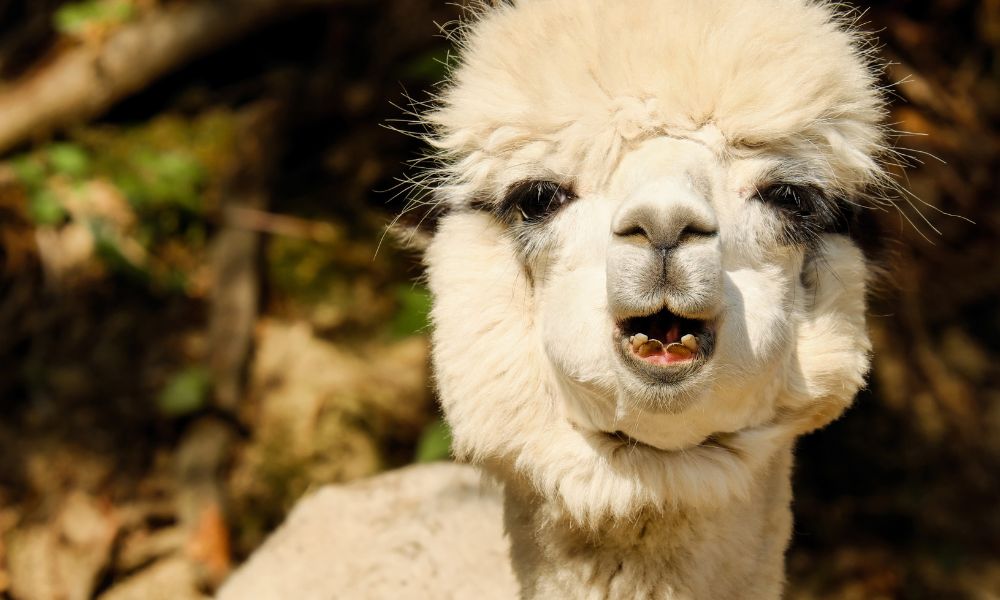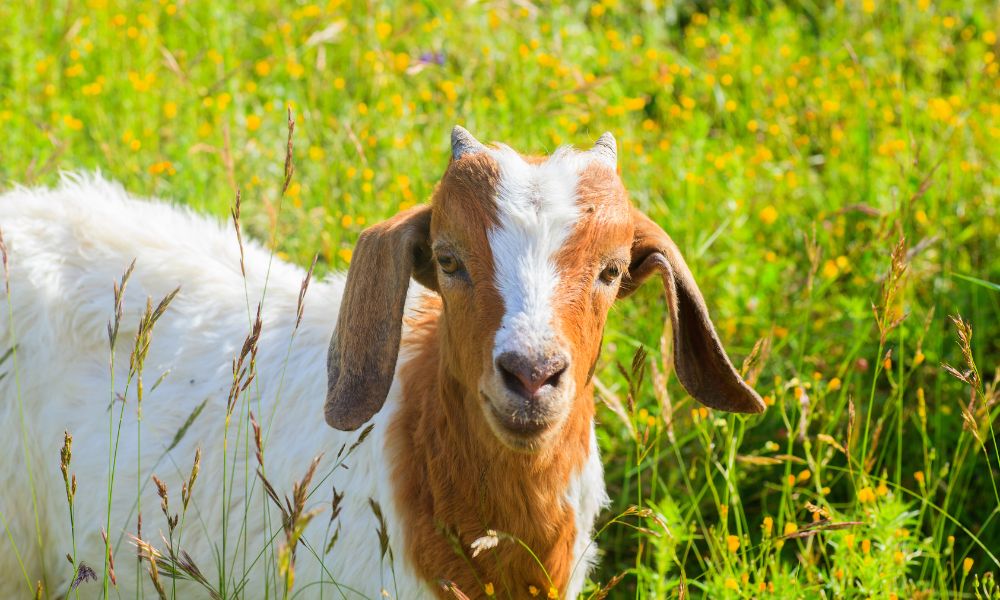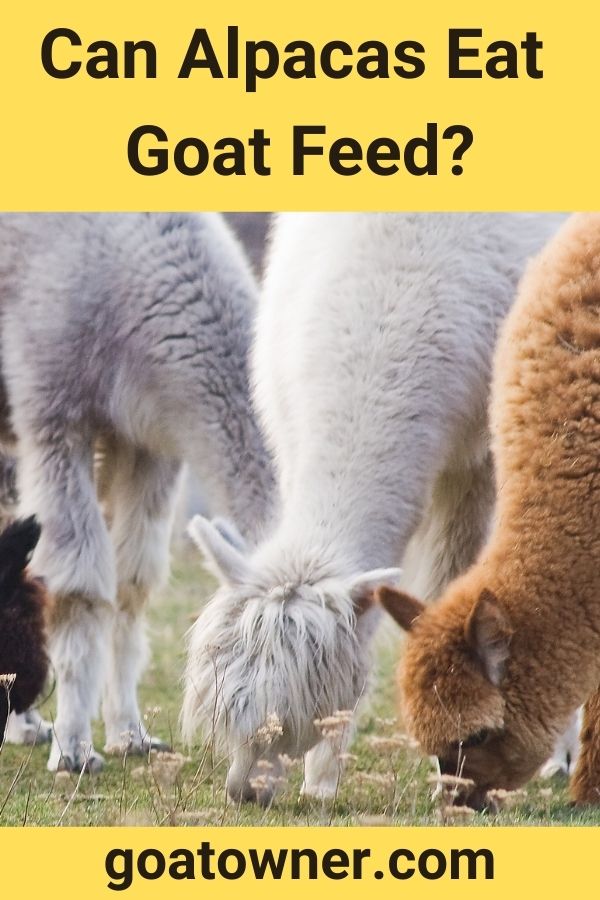The other day a friend of mine was short on alpaca feed and he asked me if it would be okay to share my goat feed with them—I wasn’t sure so I decided to look into it.
If you’re being responsible, then, you shouldn’t be regularly giving alpacas goat feed.
They will have different needs, and while they may seem to have similar diets, when it comes to specifically formulated and processed feed, their needs will in fact be quite different.
Let’s look into this.

Can goats and alpacas eat the same food?
The answer depends on whether or not you intend to make a habit of it.
The simple answer is no, they shouldn’t.
While they might share a basic, herbivorous diet, they do have very different needs.
When we talk about ‘feed’, we mean something that has been specifically processed and formulated for that animal.
This means we can look at the animal’s precise needs and figure out what needs to go into the food and in what quantities.
The biggest issue you’re going to face is the copper content.
Goats need quite a lot more copper in their diets than alpacas do.
This means that there will be excessive copper in the food for alpacas, and over time this could lead to a number of issues.
So, in a pinch if you are out of alpaca food, then giving them goat feed would be better than letting them go hungry.
However, you should not make a habit of it. even something as subtle as the difference in copper content can contribute to long-term ill health.
Can goats eat alpaca feed?

You may naturally be wondering if it works the other way around, too.
The answer is basically the same, although the results are likely to be worse for the goat in the long run.
Excessive copper in an alpaca’s diet isn’t great—but a copper deficiency in a goat would be even worse.
Since the alpaca feed wouldn’t have enough copper for a goat, if it was eating it regularly over time, it would start to show signs of nutrient deficiencies.
So, no, goats shouldn’t eat alpaca feed—although, again, it would be better in a pinch than letting them go hungry.
So, what is goat feed actually made of?
What is goat feed made of?
Many different things, is the only answer, really.
Most commonly, it is a formulation of alfalfa pellets, mixed with other vitamins and nutrients.
Again, you can see that the alfalfa itself would not be a problem for alpacas.
In fact, alfalfa is a great source of protein for your alpaca.
It’s a great feed in that sense, were it just being grown unformulated.
However, when it is formulated as goat feed, a number of things are added that won’t be of much benefit to your alpaca.
Copper, as I mentioned, but other things too.
Whatever the goat feed is made of, whether alfalfa, meadow hay, or ryegrass—it’s not the main ingredient, but the additional nutrients that are problematic.
Can alpacas and goats live together?
As long as everyone’s needs are comfortably met and there is no need for squabbling over space or food, then they should have no problem living together.
They are both reasonably docile animals, and shouldn’t wish to get into conflict with one another unless they think it’s completely necessary.
They will need plenty of space, though, so be sure you have everything you need to provide for them both.
Goats tend to be more aggressive, particularly males, so if you aren’t planning on breeding them, castrating your goat at a young age is a good idea.
What to do if an alpaca eats goat feed
The simple answer is nothing, really.
Unless it has consumed a massive quantity, you’re unlikely to see any serious adverse effects.
As I said, the problem is the excess copper, and the problem with that would be it building up over time.
If your alpaca has eaten a huge amount of goat feed before you realized, then it may be worth calling a vet.

Keep an eye on their behavior, in any case, and on the lookout for anything strange or unusual.
For the most part, though, you’re only going to see major issues in the long term.
So, the bottom line is about these mineral deficiencies.
Goats and alpacas may both be herbivores, but they are still very different creatures with very different and individual needs.
They both should be getting a variety of feed, anyway, and not just eating formulated food, but they will need their own particular food if they are going to be healthy and thrive.
In a pinch, it’s better than letting them go hungry, but don’t make a habit of it.

